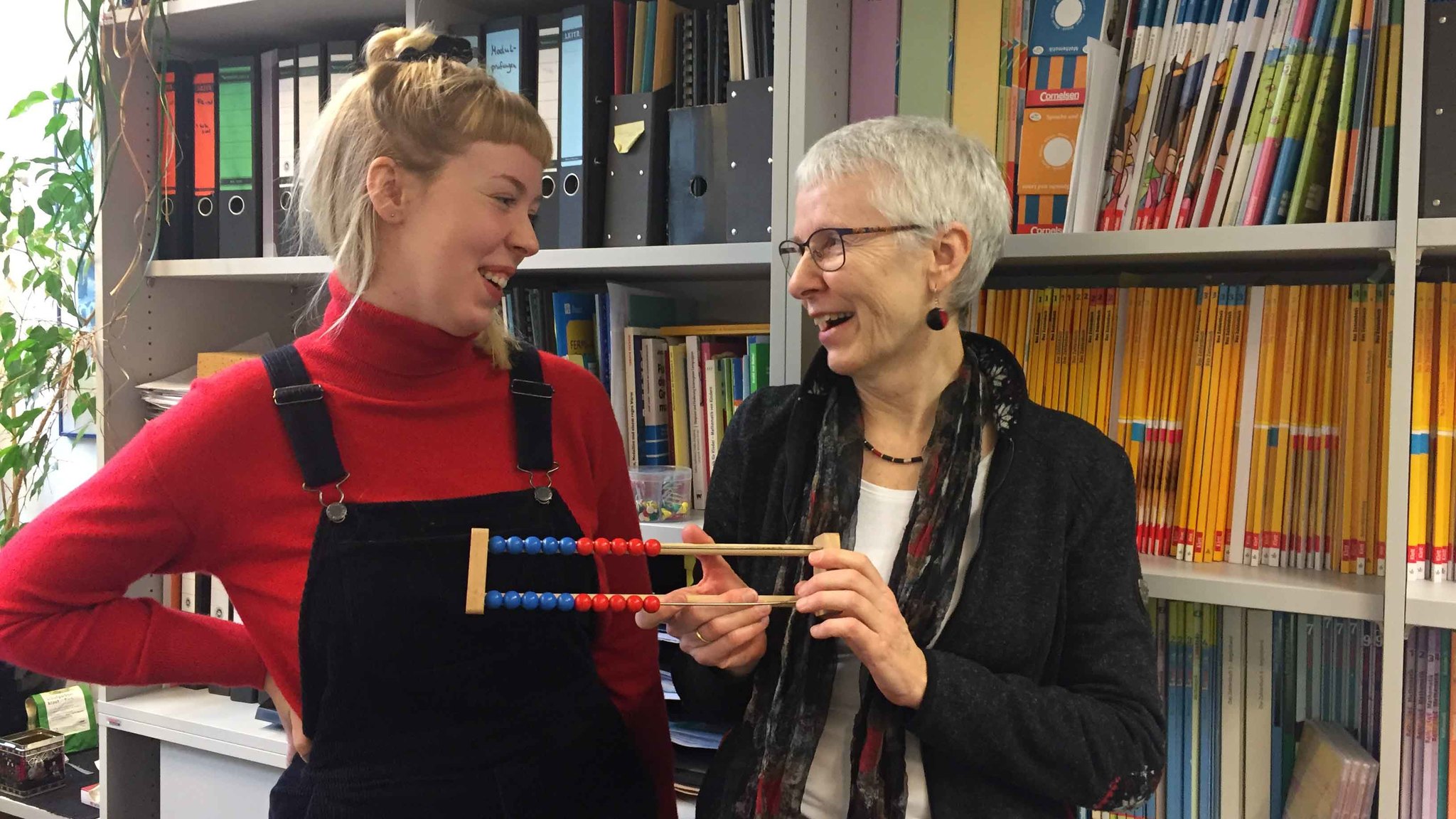
© Christina Selzer/Universität Bremen
No Fear of Numbers
Scared of math? Many people are but enjoyment of the subject can be awoken as early on as during primary school years.
Just the thought of numbers causes many people to break out in a sweat. Some people had bad experiences with math in school and don’t like to think back to those times. How can you teach young school pupils that math can be fun? Dagmar Bönig, a professor of didactics of mathematics, and her student Inka Barthel are dealing with this question.
Inka Barthel is a stroke of luck for her future school pupils. The student is in her third semester of her master’s degree in primary school teacher education and inclusive pedagogy and will later teach mathematics. That the 24-year-old had bad experiences with the subject during her own time at school has now proven to be an advantage when she needs to dispel the primary school pupils’ fear of math. She knows exactly what math teachers can do wrong, namely “not catering to the children and not reacting to what the children can do.” For her it is clear: Her Lessons will be different. She is angry when she looks back: “It could have been so much easier for me if I had learnt back then how I can enjoy it. There is, in fact, a different way.”
When Children Experience Failure it Causes Fear
Dagmar Bönig agrees. The professor of didactics of mathematics at the University of Bremen has met many students who struggled with the subject during the course of her career. There are two reasons why children become scared of mathematics in Bönig’s opinion: “The first reason is that children experience failure at an early age, which causes fear. Secondly, the subject often doesn’t initially have any connection to the lives of young people. That makes it more difficult to create a personal connection.” Often, it only becomes clear at a later point in time for what you need mathematical skills for on a day-to-day basis: your pension, rent, bills, percentages and fractions. But those who had great difficulty with calculations in school will most probably have said difficulties later because they are lacking a foundation. “You don’t simply grow out of it unfortunately,” says Dagmar Bönig.
Practice Makes Perfect - That Applies to Maths Like it Does to Learning an Instrument
And there is only one thing that helps: practice. But not tediously, rather in an expedient manner. Math professor Bönig compares it to learning how to play an instrument. “A certain frustration tolerance” is quite helpful in the professor’s opinion. In the field of music, people are used to practicing even when it is no fun: “You can’t learn how to play the violin by looking at it. That determination is what you need for mathematics.” But she also knows that it is often teaching staff who make sure that school pupils never discover how mathematics can be fun. Especially the adults of today have had bad experiences with didactically questionable methods: “I still remember the corner calculation game from my primary school period. Awful! Those who were able to solve the math problem were allowed to sit down. Those who couldn’t do it just stood there. It was horrible. That is poison for children. They have to offer math problems with which the children have moments of success.”
Clever Strategies Help to Identify Sequences of Numbers
Inka Barthel gave extra lessons to primary school children who had problems with math for half a year during her degree. That was good for her and for the children: “One girl from the second grade quickly became stressed and then shouted, ‘I can’t do this, it’s not working!’ It is important that they don’t feel overwhelmed,” explains Inka Barthel. “We then took small steps so that she became more confident. Nothing works if someone is panicked.”
There are effective tricks that stop numbers becoming jumbled in your head. A large number of objects, for example 20, can be identified without counting if you split the objects into four groups of five. Multiplication tables also don’t need to be learnt by heart. Rather, children can learn a structure which helps them to better identify the numbers. During her degree, Inka Barthel learnt methods that simplify the learning of multiplication tables, which she is now passing on. “For example, if a child does not know what nine times eight is, then it knows what ten times eight is. That is much simpler.”
There are many good ways to motivate children and it is these ways that Dagmar Bönig wants to pass them onto her students.